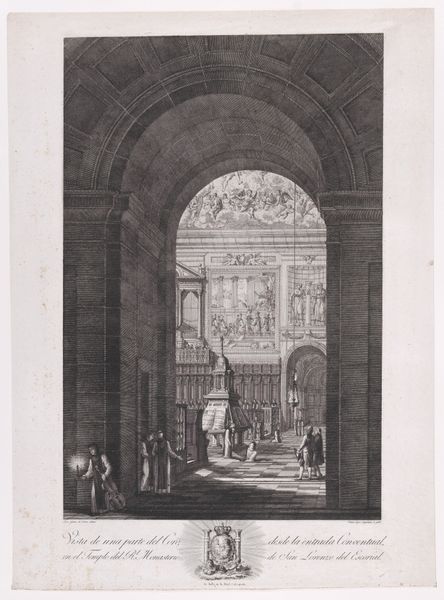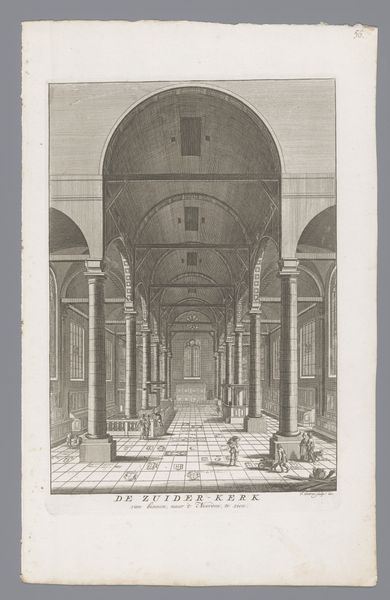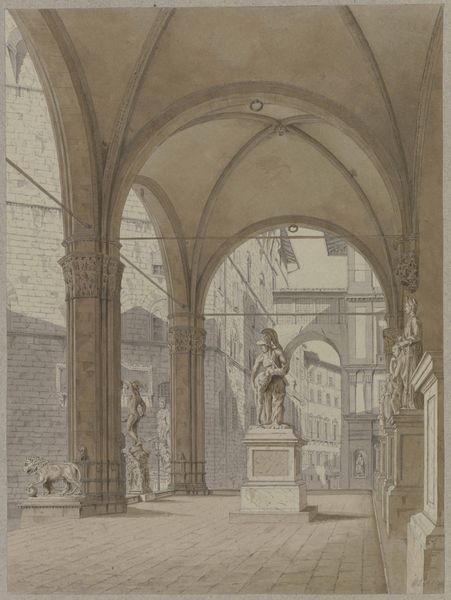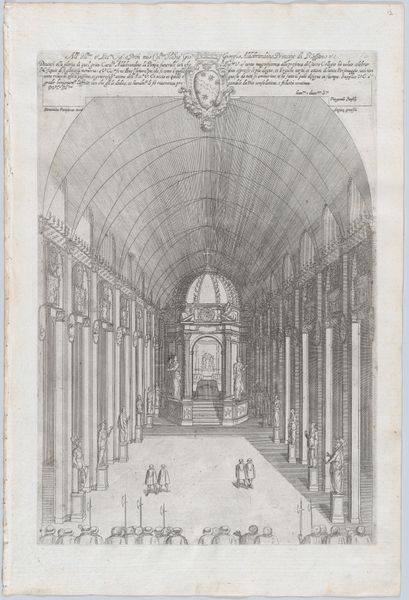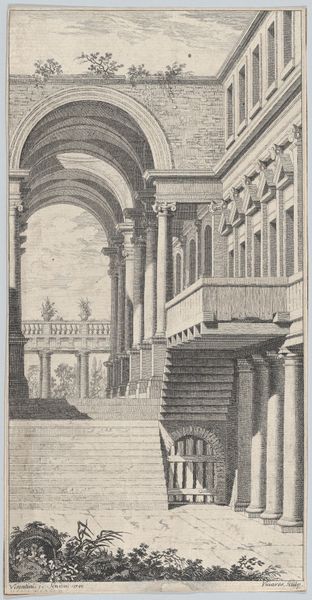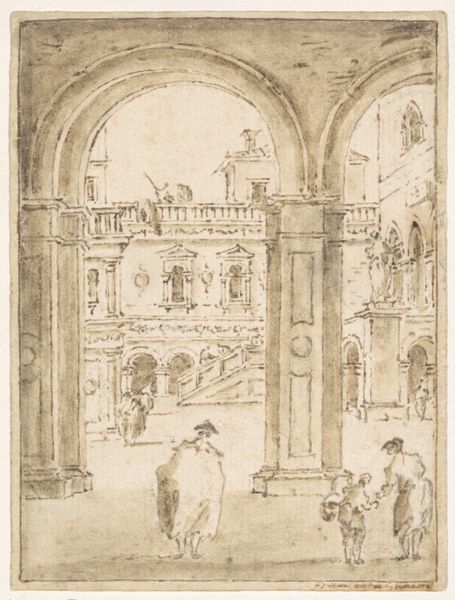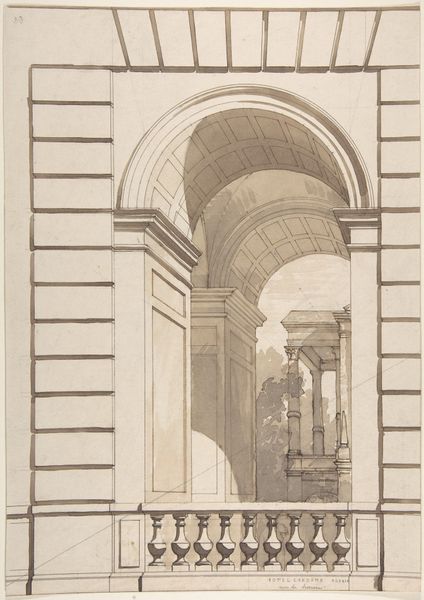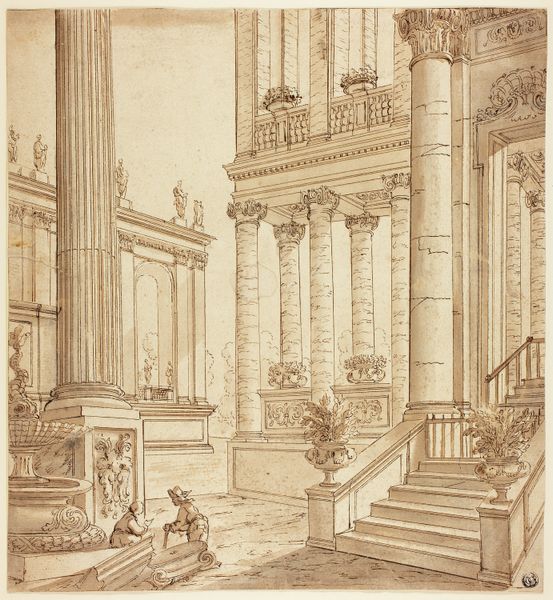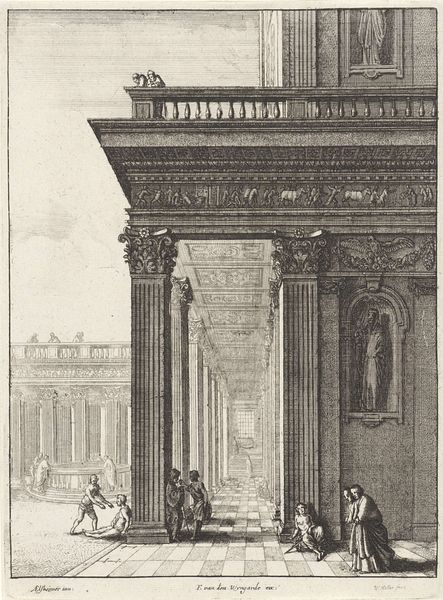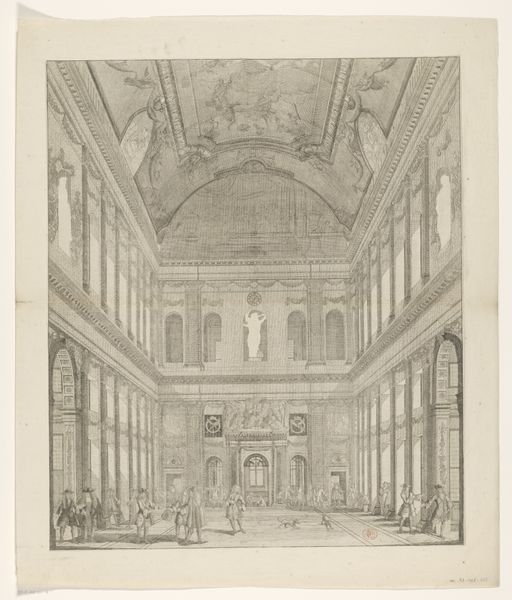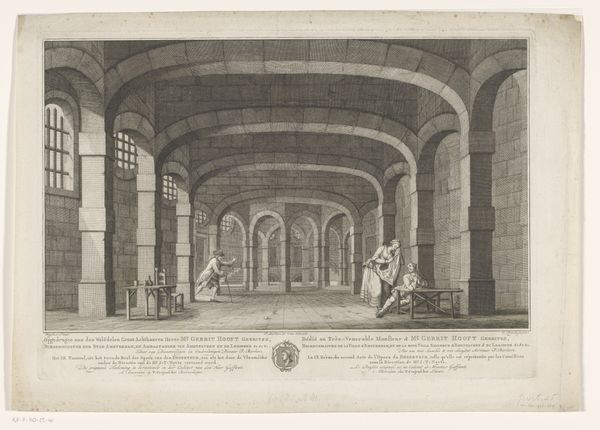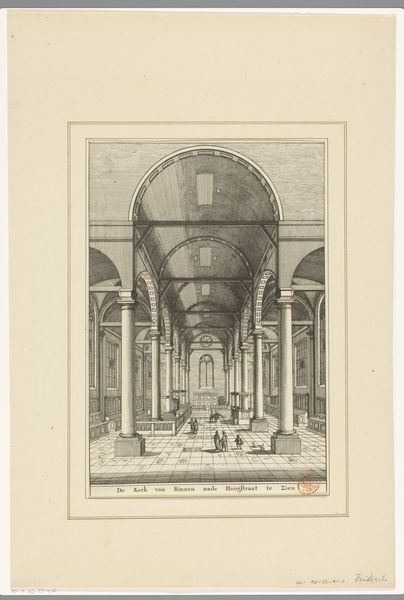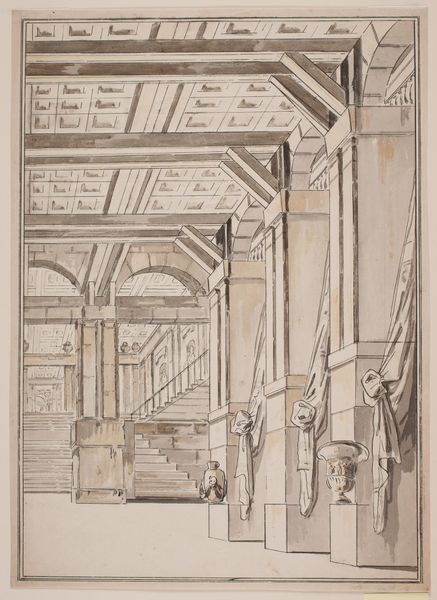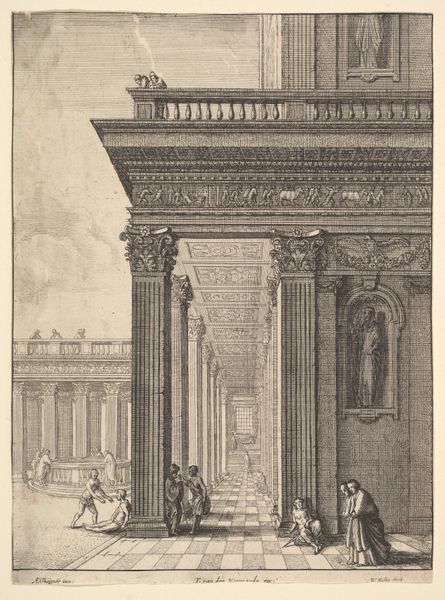
Deel van de galerij rond de Burgerzaal in het Stadhuis op de Dam 1661
0:00
0:00
danckerdanckerts
Rijksmuseum
print, engraving, architecture
#
baroque
#
dutch-golden-age
# print
#
perspective
#
cityscape
#
engraving
#
architecture
Dimensions: height 395 mm, width 227 mm
Copyright: Rijks Museum: Open Domain
Editor: This is "Deel van de galerij rond de Burgerzaal in het Stadhuis op de Dam," a 1661 engraving by Dancker Danckerts. I’m struck by how the lines create this incredible sense of depth, pulling you into the architecture. What compositional elements do you find most compelling? Curator: The perspective, unequivocally. Observe how Danckerts employs orthogonal lines that converge toward a vanishing point. This deliberate arrangement constructs an illusion of depth on a two-dimensional surface. It transforms architectural representation into an experience. Note the careful orchestration of light and shadow. Editor: It’s so precise, almost mathematical in its construction. Does the architectural structure itself hold any particular significance? Curator: Indeed. The structure demonstrates baroque principles of architectural design in the 17th Century, like the archways, the ornamentation. What semiotic value does this image, with its calculated perspective and representation of civic architecture, suggest to you? Editor: It projects order, rationality, and power. The receding lines almost force your gaze towards the vanishing point, as if demanding your attention. I never considered how strongly architectural prints could convey a sense of authority simply through visual devices. Curator: Precisely. Danckerts manipulated these devices to emphasize the power inherent within the architecture itself. That's how we decode art with semiotics and structuralism. What have you discovered during this dialogue? Editor: The formal elements are more powerful carriers of meaning than I previously appreciated. I learned to analyze the composition from new perspective. Curator: As did I - these old forms are new again once we find our own eyes with which to consider them.
Comments
No comments
Be the first to comment and join the conversation on the ultimate creative platform.
